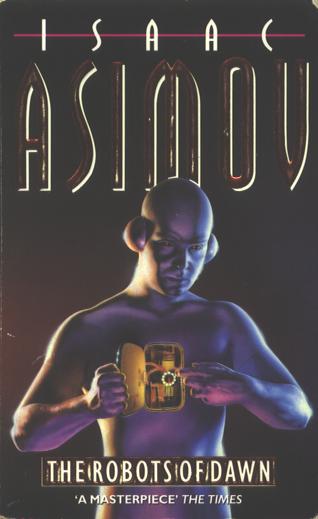
It’s actually not a bad bridge from robots to dystopia - throughout the Robot Novels, Asimov focuses on the conflict between the people of Earth and the Spacers, in which each side fears the influence of the other and strives to preserve its own world and prevent the descent into a dystopian society, as would surely happen if the other side were allowed too much influence. Jeez, he always is.Although it is no longer Robot Month at Fandomania, the trek through Isaac Asimov’s novels and stories about robots continues. Asimov is a fantastic writer no matter what he’s doing, and while there are other books of his that are a lot of fun, this is great too. So all of this brings us on to the final big question of whether this is worth reading or not, and my answer to that would be 100% yes. Sure, you’ll get a little more out of it if you follow the series through from start to finish, but it’s not a hard and fast rule and all that you miss out on is a little character development.

I’ve read a mystery of his called A Whiff of Death which was set in our world on an American college campus, and that was fantastic.Īnother piece of good news is that despite the fact that this is the third book in a series, you can still read it as a standalone if you want to. What I will say is that it holds its own both as a science fiction novel and as a mystery novel, and indeed I think that Asimov is one of the underrated masters of the genre. Obviously I don’t want to go too much into the details of the plot, because the last thing that I want to do is to spoil it for people. After all, robots aren’t alive, right? There’s even some stuff on how while you can use roboticide and homicide, the word “ murder” doesn’t seem to quite apply.

In fact, the whole case here revolves around the murder of a robot, and so there’s a lot of discussion around whether such a thing is even possible. Then we have the morality side of things. We get some great examples of that here, including some suggestions of scenarios which could cause two of the laws to come into conflict with themselves and to cause a robot to overload.

What’s fun about this book, like the other books that tie in with these laws, is that Asimov basically created them only so that he could bend and break them.

Asimov is probably most famous for creating the three laws of Robotics, which are the following: This book is one of the installments in Asimov’s Robot series, and so that makes it essentially a science fiction detective novel with a whole bunch of ethics thrown in.


 0 kommentar(er)
0 kommentar(er)
